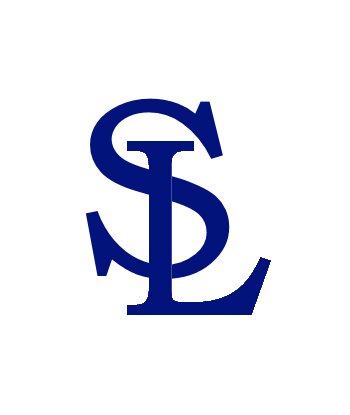Best Antitrust Litigation Lawyers in Boston
Share your needs with us, get contacted by law firms.
Free. Takes 2 min.
List of the best lawyers in Boston, United States
About Antitrust Litigation Law in Boston, United States
Antitrust litigation involves legal disputes related to unfair business practices that harm competition or consumers. In Boston, as part of the United States, antitrust laws are enforced both federally and at the state level. These laws are designed to promote fair competition, prohibit monopolies, and prevent fraudulent business activities that restrain trade. Businesses, consumers, and government agencies may become involved in antitrust cases, which can address a wide range of alleged misconduct such as price fixing, bid rigging, market allocation, or abuse of dominant market positions. Boston, known for its robust business and innovation economy, experiences a range of antitrust issues particularly in sectors like healthcare, technology, finance, and education.
Why You May Need a Lawyer
Antitrust litigation is highly complex and can carry serious legal and financial consequences. Common situations in which individuals or businesses may require legal assistance include:
- Being accused of violating antitrust laws by federal or state authorities
- Believing that your business has been harmed by another entity's anticompetitive practices
- Receiving a subpoena or investigative inquiry from government agencies
- Participating in mergers or acquisitions that could raise antitrust concerns
- Facing class action lawsuits alleging price fixing or other antitrust violations
- Dealing with resale price maintenance or restrictions on market access
- Negotiating settlements or regulatory compliance matters
Having an experienced antitrust lawyer can help ensure your rights are protected, your business complies with the law, and you understand both the risks and options available to you.
Local Laws Overview
Boston follows both federal and Massachusetts state antitrust laws. Key federal statutes include the Sherman Act, Clayton Act, and Federal Trade Commission Act. These laws prohibit anticompetitive agreements, monopolistic practices, and unfair business conduct. Massachusetts has its own antitrust statute, primarily the Massachusetts Antitrust Act (M.G.L. Chapter 93), which generally mirrors but can also supplement federal law.
Enforcement can come from several sources: the U.S. Department of Justice Antitrust Division, the Federal Trade Commission, and the Massachusetts Attorney General's Office. Civil and criminal penalties may apply. Boston courts are frequently the venue for significant antitrust cases, particularly given the city’s concentration of corporate headquarters, universities, and hospitals.
Frequently Asked Questions
What is considered an antitrust violation?
An antitrust violation involves activities that restrict competition, such as price fixing, bid rigging, market allocation, monopolization, or exclusionary practices that harm consumers or competitors.
How do I know if my business is at risk of an antitrust investigation?
Businesses should be cautious if they are discussing prices, business territories, or markets with competitors, or if they have significant market power or are engaging in mergers or acquisitions. Legal counsel can assess risk based on specific conduct.
Who enforces antitrust laws in Boston?
Antitrust laws are enforced by the U.S. Department of Justice, the Federal Trade Commission, and the Massachusetts Attorney General's Office. Private parties can also initiate lawsuits.
Is antitrust litigation only for large corporations?
No. While large corporations are often involved, small businesses and even consumers can be parties in antitrust suits, either as plaintiffs or defendants.
What are the possible penalties for violating antitrust laws?
Penalties may include hefty fines, injunctions, lawsuits, damages, and in some cases, criminal charges which can lead to imprisonment.
Can individuals sue for antitrust violations?
Yes. Individuals and businesses harmed by antitrust violations can file private lawsuits seeking damages or other relief.
How long do antitrust cases typically take to resolve?
Antitrust litigation can be lengthy, often taking several months to years, depending on the complexity of the case and whether it involves appeals or settlements.
Do antitrust laws apply to mergers and acquisitions?
Yes. Mergers and acquisitions may be challenged if they harm competition or create monopolies. Regulatory review is often required for large transactions.
What should I do if I receive a government inquiry or subpoena?
Do not ignore it. Consult an antitrust lawyer immediately to understand your obligations and craft an appropriate response.
What industries are most often involved in Boston antitrust litigation?
Key sectors include healthcare, pharmaceuticals, technology, higher education, and financial services, though antitrust laws apply to all industries.
Additional Resources
If you need further information or assistance related to antitrust law and litigation in Boston, consider reaching out to these organizations:
- Massachusetts Attorney General's Office Antitrust Division
- United States Department of Justice Antitrust Division
- Federal Trade Commission (FTC)
- Boston Bar Association Antitrust Law Section
- Local universities and law libraries (for antitrust law research and guidance)
Next Steps
If you believe you need legal assistance regarding an antitrust issue in Boston:
- Document all relevant business practices, communications, and transactions
- Consult with an experienced Boston-based antitrust attorney to evaluate your case and defenses
- Respond promptly to any government communications or legal notices
- Understand your rights, obligations, and potential exposure under federal and Massachusetts state law
- Consider alternative dispute resolution options where appropriate
Early legal advice is often critical in antitrust matters, so acting quickly can help protect your rights and minimize risks.
Lawzana helps you find the best lawyers and law firms in Boston through a curated and pre-screened list of qualified legal professionals. Our platform offers rankings and detailed profiles of attorneys and law firms, allowing you to compare based on practice areas, including Antitrust Litigation, experience, and client feedback.
Each profile includes a description of the firm's areas of practice, client reviews, team members and partners, year of establishment, spoken languages, office locations, contact information, social media presence, and any published articles or resources. Most firms on our platform speak English and are experienced in both local and international legal matters.
Get a quote from top-rated law firms in Boston, United States — quickly, securely, and without unnecessary hassle.
Disclaimer:
The information provided on this page is for general informational purposes only and does not constitute legal advice. While we strive to ensure the accuracy and relevance of the content, legal information may change over time, and interpretations of the law can vary. You should always consult with a qualified legal professional for advice specific to your situation.
We disclaim all liability for actions taken or not taken based on the content of this page. If you believe any information is incorrect or outdated, please contact us, and we will review and update it where appropriate.









